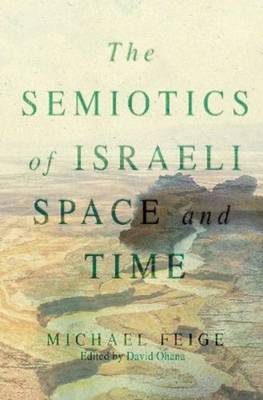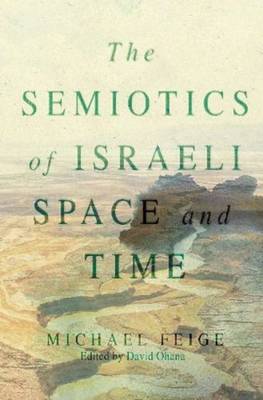
Je cadeautjes zeker op tijd in huis hebben voor de feestdagen? Kom langs in onze winkels en vind het perfecte geschenk!
- Afhalen na 1 uur in een winkel met voorraad
- Gratis thuislevering in België vanaf € 30
- Ruim aanbod met 7 miljoen producten
Je cadeautjes zeker op tijd in huis hebben voor de feestdagen? Kom langs in onze winkels en vind het perfecte geschenk!
- Afhalen na 1 uur in een winkel met voorraad
- Gratis thuislevering in België vanaf € 30
- Ruim aanbod met 7 miljoen producten
Zoeken
Omschrijving
Analyses by the Israeli sociologist Michael Feige embraced every aspect of the State of Israel. He examined the ever-changing and complex identity of Israelis; how they remember and commemorate themselves; the long- and short-term conceptions of time of the left- and right-wing political movements; the spacial concept of the settlers; myths underlying the lives and deaths of its citizens; and the dialectical vicissitudes of the real and imagined Israel. The book contains material from Professor Feiges literary output, contextualized in an Introduction by David Ohana. Chapters delve into the meaning of Israeli signs and symbols; the semiotics of secular spaces (sites of disasters and graves of political and religious leaders); the semiotics of historical time and daily existence; forms of commemoration (of figures like David Ben-Gurion, Yitzhak Rabin, airforce pilots, a female settler and a peace activist). Feige scrutinized communities formed around political cells, the processes of fragmentation and globalization in Israel, the traumas and scars from the Yom Kippur War, the evacuation of settlements, and the killing of Yitzhak Rabin. Feiges scrutiny illuminated Israeli society in myriad ways. He was a sociologist among historians and a historian among sociologists, and internationally acknowledged as having an extraordinary ability to convey sociological meaning and structure to Israels radical political culture as expressed in its social actions and underlying mythology. Semiotics of Israeli Space and Time is not only an essential sociological toolbox for students and an historical masterpiece for the wider Israeli public to better understand the society to which they belong, but a commemorative volume to honour his life and work. Michael was murdered on 8 June 2016 when two Palestinian gunmen opened fire in the Sarona Market in Tel Aviv.
Specificaties
Betrokkenen
- Auteur(s):
- Uitgeverij:
Inhoud
- Aantal bladzijden:
- 340
- Taal:
- Engels
Eigenschappen
- Productcode (EAN):
- 9781789760774
- Verschijningsdatum:
- 24/11/2020
- Uitvoering:
- Paperback
- Formaat:
- Trade paperback (VS)
- Afmetingen:
- 154 mm x 228 mm
- Gewicht:
- 607 g

Alleen bij Standaard Boekhandel
+ 220 punten op je klantenkaart van Standaard Boekhandel
Beoordelingen
We publiceren alleen reviews die voldoen aan de voorwaarden voor reviews. Bekijk onze voorwaarden voor reviews.









